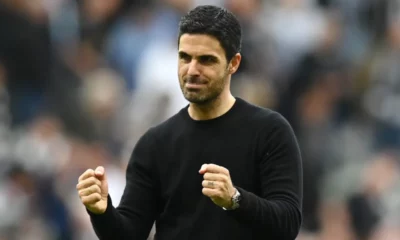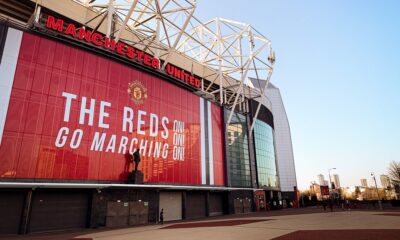Man Utd General News
‘The Greatest Of Them All’
6th February 1958, a day that will always live in the mind of any Utd fan. Whether young or old, the tragedy that struck on this cold, winters afternoon will always be synonymous with Manchester United F.C.
Following a European Cup game against Red Star Belgrade, flight 609 crashed on it’s third attempt to take off from Munich airport where the plane had stopped to re-fuel. On board the plane was perhaps the greatest club side the world had ever or will ever know, ‘The Busby Babes’. English Champions in 1955-56 with an average age of just 22, the team went on to win the title again the following season and a sustained period of dominance seemed inevitable. Just before flying out for that fateful quarter-final clash with the Yugoslavian side, the Babes had travelled to Highbury on 1st February 1958 and in a typically enthralling display of attacking football had won the match 5-4 in front of 63,578 lucky supporters. A standing ovation ensued from the home fans – a fitting final tribute on English soil to such a special team.
On board the plane that day were 44 people including players, staff and journalists. Of these 44, 20 died at the scene. 3 more would later die in hospital. Of all of the players on board that plane, the most gifted was a 21 year old left back or midfielder (although in truth he could play anywhere) by the name of Duncan Edwards. In 177 league appearances for the club, the Dudley born colossus scored 21 goals. In his 18 caps for his country, of which he was immensely proud, he scored 5 times. A versatile and determined character, Edwards seemed a certainty to be a future England captain. He was the youngest ever player to wear the famous three lions up until his record was broken by Michael Owen in 1998. It is widely believed that if fate hadn’t been so cruel, it would be Edwards and not the late, great Bobby Moore who would have lifted the World Cup at Wembley in 1966.
Following the disaster, Edwards was taken to the Rechts der Isar Hospital in Munich with severe injuries to his kidneys, legs and ribs. Many believed that the injuries sustained were too severe to recover from. Ultimately they were right. Edwards fought in hospital for 13 days and seemed to be on the mend, typically determined and positive, he asked the boss “What time does the Wolves game kick off?” General consensus was that of hope and positivity in that one day they would be afforded the privilege of watching Edwards take to the field again. Sadly, that was not the case as on 21st February 1958, Duncan Edwards died in hospital from kidney failure. It was a testament to his spirit that he battled for as long as he did. England manager Walter Winterbottom stated “It was in the character and spirit of Duncan Edwards I saw the true revival of English football.”
As the news broke, described by Bobby Charlton as ‘the worst moment of my life’, a national out pour of grief and sympathy flooded the streets of Manchester, the United Kingdom, and the world. As long as Edwards was alive, so was the hope that as a club, Manchester United and the families of those taken could get through this. When Duncan Edwards died, so did a big part of that hope. When his body was returned to his native Dudley, over 5,000 people lined the streets to pay tribute to one of the most naturally gifted footballers to ever grace this planet.
Sir Matt Busby described him as ‘the greatest of them all.’
How good Edwards would have gone on to become, we will never know for sure but what is certain is that here was an unbelievable talent taken from the world of football far, far too young. The greatest player never to have lived. Not to the maximum of his immense potential will always be remembered with a sense of injustice that he did not get to really show just how good he was.


















